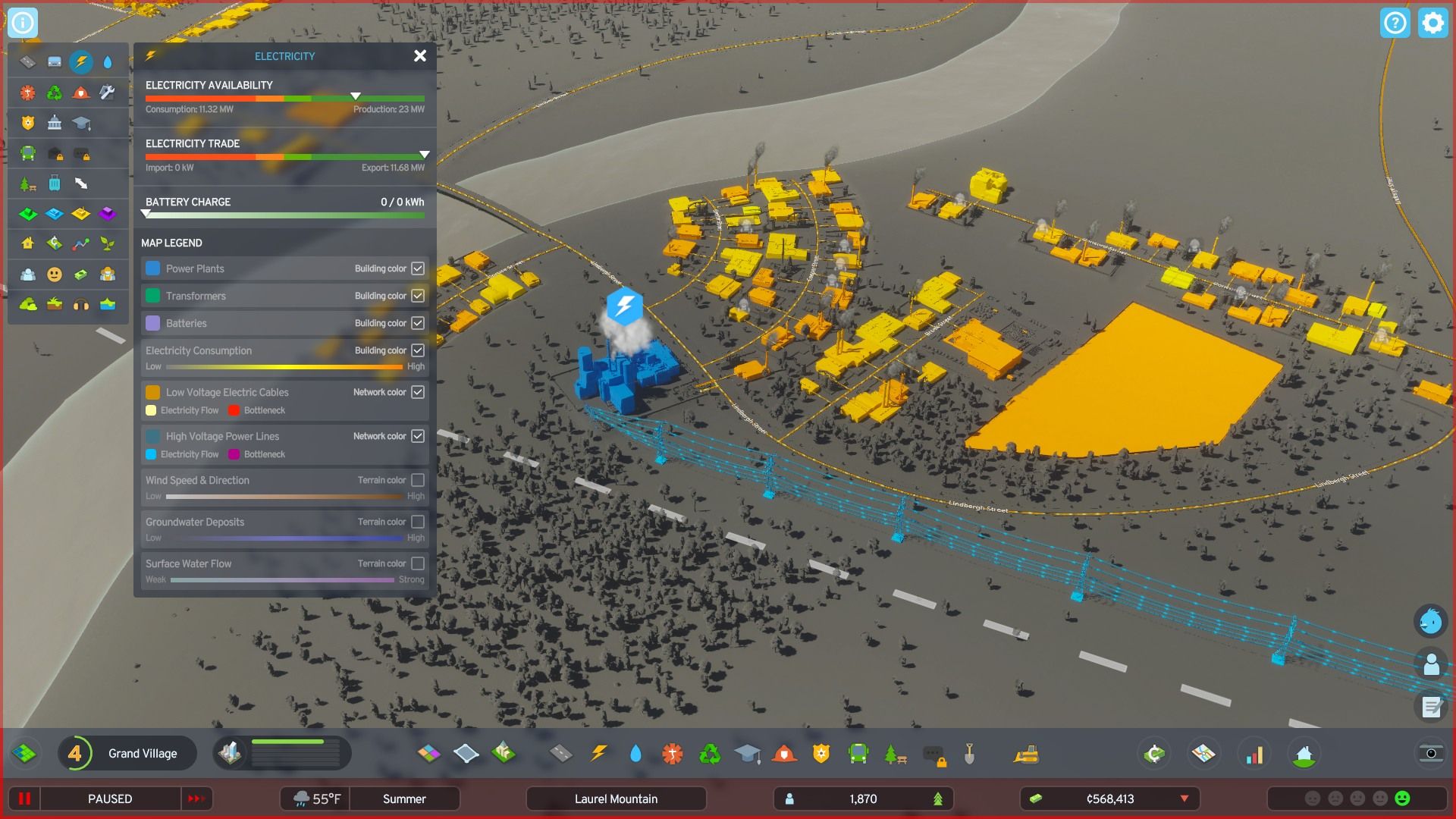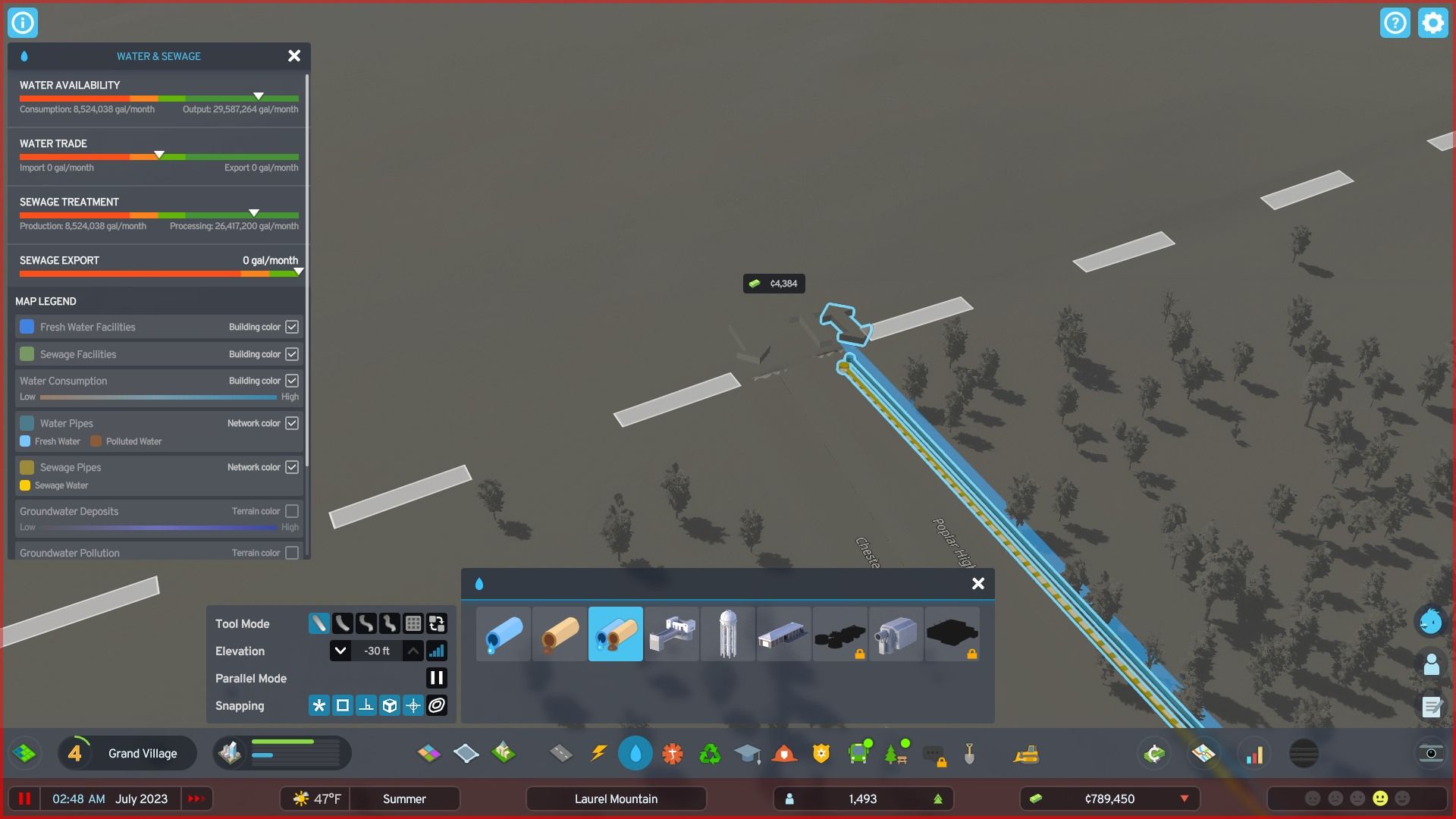
Cities: Skylines 2 - Mastering Power and Water Trading

Discover the game-changing feature of outside utility connections in Cities: Skylines 2 Learn how to efficiently import and export power and water, ensuring the smooth functioning of your city Master the art of connecting power and managing water and sewage systems for optimal gameplay
Cities: Skylines 2 brings in some fresh elements that were lacking in the previous game, drawing inspiration from other city builders. One notable addition is the option to establish and utilize external connections for water and power supply. After all, it's not realistic to expect every urban area to have its own independent reservoir or power generation facility.
While players can quickly tap into the new power connection, setting up the water and sewage systems requires a bit more effort, particularly in the initial maps of Cities: Skylines 2. Keep reading to discover the steps to establish these crucial connections and make the most out of them.
How to Connect Power
Every power plant and transformer is equipped with a high-voltage connection at the rear and a low-voltage connection at the front. While the low-voltage connection seamlessly links to the road networks, players must manually establish the high-voltage lines.
In every initial map, a power connection is conveniently positioned in one corner of the area available for construction. To ensure a smooth connection to the external power grid, players are advised to construct their first power plant in the same corner. As players expand their infrastructure and establish more power plants and transformers, it becomes imperative to connect each of them with high-voltage wires if they wish to import and export power beyond the local vicinity. Thankfully, should the power towers obstruct the view or interfere with aesthetics, players are able to construct them underground.
Once players have this external connection, they should observe the movement of the needle on the "Electricity Trade" meter. In the event that the city's electricity production falls short of its requirements, the needle will shift into the orange and red range as the game automatically imports the necessary power. Generally, this imported power will be more expensive per megawatt than any power plants or wind turbines. On the other hand, if the city generates excess electricity, it can be exported to generate income for the city. However, players may still consider reducing their power generation to maximize savings.
How to Connect Water and Sewage
In contrast to power, the starting maps in Cities: Skylines 2 lack any initial external water or sewage connections. Nonetheless, custom map creators have the capability to incorporate such connections, which could prove useful in desert-themed maps. Moreover, players now have the option to establish their own connections, adding to the list of newly introduced features.
Players need to be aware that the water and sewage connection must extend beyond their owned area in the game. In order to achieve this, they will need to purchase additional map squares until they reach the edge. Once this is done, players can create a connection by running water pipes up to the dotted line. An arrow will indicate when the connection has been successfully established. It is important to note that the connection can involve either water, sewage, or both simultaneously. However, it is essential for the other end of these pipes to be connected to the road network for them to function properly.
In terms of monitoring this connection, players should keep an eye on the "Water Trade" and "Sewage Export" meters. Similar to power generation, players can export excess water they produce and import water when their local pumps and towers are insufficient. They can also export any sewage that cannot be handled within the city, but they are unable to import sewage to utilize local water treatment plants.
An outside connection serves as a valuable lifeline for the city in case of water shortage, similar to how it functions with power. It also presents an opportunity to generate income by exporting excess water production. However, just like power, players may choose to lower their water budget instead of depending solely on export earnings.
Cities: Skylines 2 can now be played on PC, PS5, and Xbox Series X/S.








